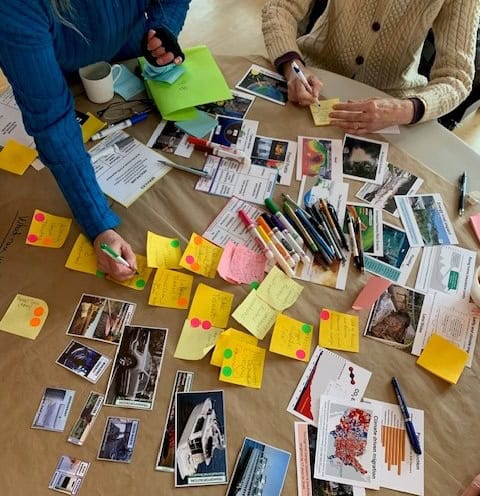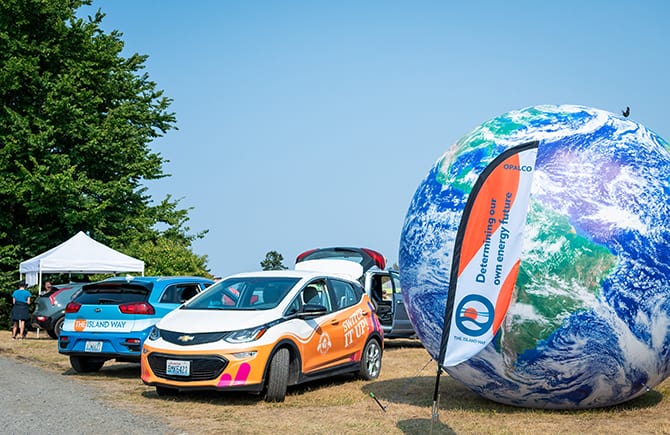Island to Island: Local lineworkers make a difference in Jamaica
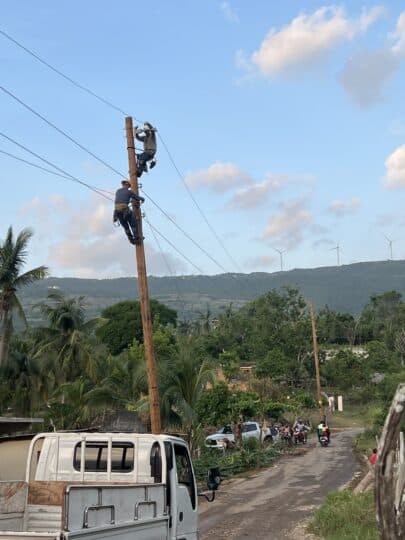
Earlier this year, NRECA International put out a call to help restore power for hundreds of people in Jamaica who were without electricity following Hurricane Beryl. Two journeymen
lineworkers from Orcas Power & Light Cooperative volunteered: Luke Furber, from San Juan Island, and Brian Swanson, from Lopez Island.
In July, Hurricane Beryl ripped through the island nation, bringing widespread damage to roads and power lines. Power outages, landslides and structural damage slowed repairs throughout Jamaica. By the time the OPALCO team arrived, some areas had been without power for six weeks.
Volunteers from eight electric co-ops signed on to help get power restored in the farming area known as St. Elizabeth Parish, where about 3,000 electric meters were still without power. The lineworkers met in Atlanta and traveled to Jamaica from there. Once in Kingston, they met with Jamaica Power Service to attend an orientation. Then they traveled nearly four hours to the St. Elizabeth area.
Additional volunteers included lineworkers from other U.S.based co-ops and some electrical crews from Belize.
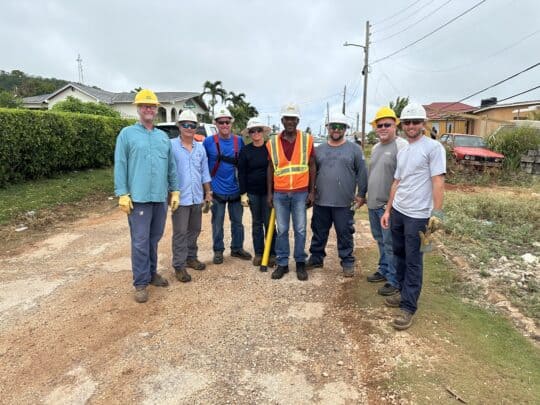
There were two houses for the workers to stay in during their time in Jamaica. The volunteers all had an instant connection, and they felt like
they had worked together for years.
For the OPALCO crew members, who are used to much cooler weather, the heat was stifling at around 94 degrees with high humidity.
“It was hard, hot work, but it was rewarding,” Brian says. Brian has worked for OPALCO for 18 years. In 2014, he went to Haiti to help a cluster of villages form an electric co-op. He says helping people by using his skillset is fulfilling. He enjoyed getting to know communities in a different way than if he was a tourist.
Luke, who has worked on the San Juan Island crew for 16 years, was moved by the 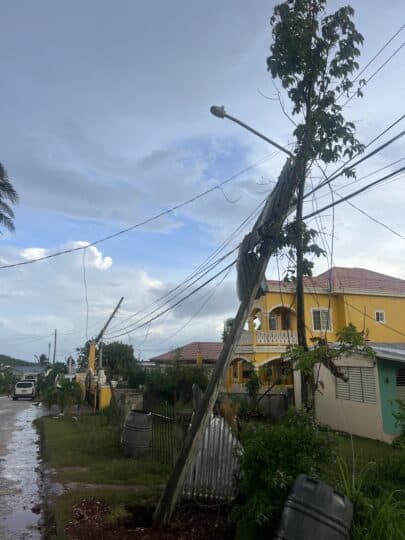 gratitude of the residents. One woman whose power was restored brought the crew a watermelon as a gesture of thanks.
gratitude of the residents. One woman whose power was restored brought the crew a watermelon as a gesture of thanks.
“We weren’t sure what was coming day by day during our time there,” Luke says. “Even though some of the equipment was different—the work is similar all over the world—it was really great to be able to share my trade to help those who really needed it.”
The first week, workers traveled to a variety of neighborhoods, climbing poles to repair the single-phase lines that serve homes. While similar to what the lineworkers typically u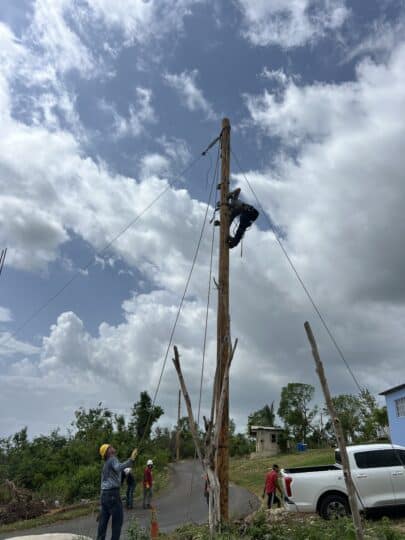 se, a lot of the equipment was older. Slowly but surely, they got people’s power back on.
se, a lot of the equipment was older. Slowly but surely, they got people’s power back on.
During their second week, volunteers got a bucket truck to help them get the work done. Sometimes their clearances didn’t come for hours, but the work was done safely. The Jamaican crews had been working 16-hour days for weeks, so it was understandable when things didn’t always go as planned.
It’s the co-op way to heed the call when others need help, and the OPALCO team is incredibly proud to step up in this way.

